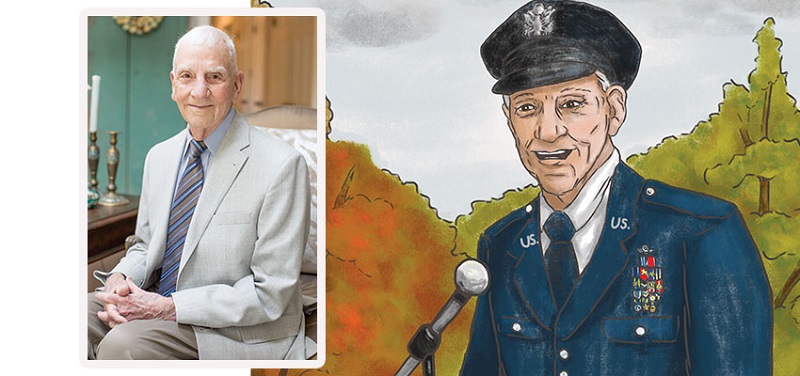Are We Setting Our Children Up for Failure?
Sign up for a six month free
trial of The Stand Magazine!
During the past 12 months, did you:
- Drink any alcohol (more than a few sips)? (Do not count sips of alcohol taken during family or religious events.)
- Smoke any marijuana or hashish?
- Use anything else to get high? (“Anything else” includes illegal drugs, over-the-counter and prescription drugs, and things that you sniff or “huff.”)
If you answered “yes” to any of the questions above, then continue:
- Have you ever ridden in a CAR driven by someone (including yourself) who was “high” or had been using alcohol or drugs?
- Do you ever use alcohol or drugs to RELAX, feel better about yourself, or fit in?
- Do you ever use alcohol or drugs while you are by yourself or ALONE?
- Do you ever FORGET things you did while using alcohol or drugs?
- Do your FAMILY or FRIENDS ever tell you that you should cut down on your drinking or drug use?
- Have you ever gotten into TROUBLE while you were using alcohol or drugs?
Oh, and it’s important for you to know that your answers “may be protected by special federal confidentiality rules (42 CFR Part 2), which prohibit disclosure of this information unless authorized by specific written consent. A general authorization for release of medical information is NOT sufficient for this purpose.”
These are the questions my 11-year-old (who was three days from turning 12) was expected to answer when I took him for his yearly wellness checkup at his pediatrician’s office. And based on the above disclaimer, apparently, I had no right, as his mother, to see his answers. … It’s crazy because according to our state’s department of health, he’s still not old enough to ride safely in the front seat of a vehicle yet he’s supposedly old enough to answer questions about “his personal” drug and alcohol use.
Here’s what happened: When I checked my son in for his wellness visit, I was told there was a form he needed to fill out. I didn’t think much of it, other than I thought it was strange that he was being asked to fill it out instead of me. I took the form, and as I was walking away from the receptionist’s desk, I glanced at the form to see what was being asked of him. Never in a million years did I expect to see such questions.
I immediately turned around and told the receptionist that I was not comfortable with my son answering the questions. She told me it was required – that the clinic was required to give the form to all children his age and that his answers were necessary. I told her that I didn’t want my son to fill it out and that I would speak to my husband about it.
I showed the form to my husband, and he agreed: We would not allow our son to read and answer those questions. Having him simply read those questions opened up a whole can of worms that we didn’t feel he was mature enough to handle yet, nor did he need to be forced to handle at such a young age.
I held on to the form. When the nurse came into the exam room, she handed me another copy of the form for our son to fill out. My husband and I quickly said, “He will not be filling out this form.”
I told her, “We are not trying to hide anything from you, but we do not feel that this is appropriate for him.”
She replied, “It is required. I will just have to mark all of his answers as “no,” so that we can have a record of it in the computer.”
I said, “That’s fine, but he’s not filling it out.”
It hit me after the fact that that wasn’t the best (or most ethical) option either. His name will still be associated with those answers even though we made a decision for our son – a minor under our care – not to fill it out. … And strangely enough, during the course of the next several days that followed his visit, I received random phone calls from the CDC in Atlanta and a nearby state university asking me to answer a survey about my children and their health. … That’s another story for another day.
But for now, I want to focus on the issue at hand – that my preteen son was expected to answer questions that would put even more questions, thoughts, and ideas (some of which he had never heard of) into his mind.
Think about it. What if he saw the term “get high” on the form? Didn’t know what it meant, so he Googles it while at school. Or perhaps now, he wants to know what “hashish” is and why someone would use it to relax. And he starts researching it. One thing leads to another and then to another.
It’s a slippery slope that I’m not willing to go down and one that I won’t go down for the sake of protecting my child.
Now, I know exactly what some of you are thinking – that I’m naïve and that we keep our child under a rock or covered in bubble wrap. That’s not the case. I am well aware that there are kids my child’s age, even younger, who do in fact smoke marijuana, who drink alcohol, who use it all as an escape, and who watch their parents do the same. I totally get that. So I admit that in such situations the form would be appropriate and useful in protecting those precious children whose lives have been wrecked by substance abuse at such a young age.
But let’s take it on a case-by-case basis and keep the best interest of each individual child in mind. Because when we don’t, we as a society are only setting our children up for failure and introducing them to it. For those children who have been nurtured and protected by God-fearing parents and the grace of God, why fill their minds with the things of the world? The doctor’s office might as well have handed my son a joint (instead of a form to fill out) on that clipboard.
No doubt, our day is coming. When the time is right, we will use the Scriptures and real-life experiences to explain to our son the dangers of substance abuse. But we, his parents whom God has entrusted to raise him, will talk to him about these things in a way that hopefully points Him to Christ and away from the world.
Until then and even after, our prayer has been and will be that Philippians 4:8 will bear truth in his life:
[W]hatever is true, whatever is honorable, whatever is just, whatever is pure, whatever is lovely, whatever is commendable, if there is any excellence, if there is anything worthy of praise, think about these things.

Sign up for a free six-month trial of
The Stand Magazine!
Sign up for free to receive notable blogs delivered to your email weekly.


















